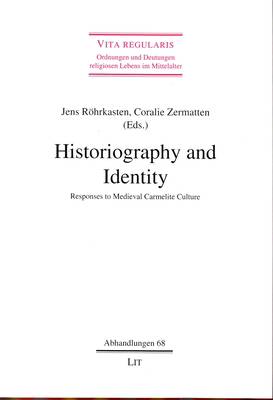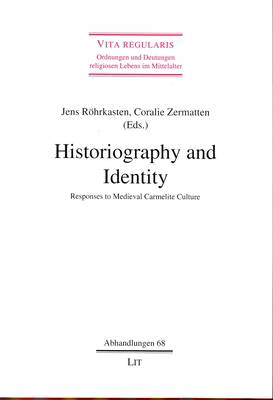
- Afhalen na 1 uur in een winkel met voorraad
- Gratis thuislevering in België vanaf € 30
- Ruim aanbod met 7 miljoen producten
- Afhalen na 1 uur in een winkel met voorraad
- Gratis thuislevering in België vanaf € 30
- Ruim aanbod met 7 miljoen producten
Zoeken
Historiography and Identity
Responses to Medieval Carmelite Culture
Paperback | Engels | Vita regularis - Ordnungen und Deutungen religiosen Lebens im Mittelalter. Abhandlungen | nr. 68
€ 29,45
+ 58 punten
Omschrijving
The Carmelites' role as one of the four great mendicant orders was not unchallenged. Originating as an association of hermits on Mount Carmel, the order experienced a dramatic transformation in the thirteenth century while its name was a reminder to origins which were obscure and its first form of religious life was diametrically opposed to the mendicant ministry. In addition the `White Friars' were unable to find legitimization in a charismatic founder figure, unlike the Franciscans and the Dominicans. These factors led the Carmelites to create an identity finding their roots with the prophets Elijah and Elisha, who appear in texts and were represented in altar pieces and other works of art. The ten articles published in this volume address these underlying issues and deal with the order's historiography as well as its regional representation in different phases of its history.
Specificaties
Betrokkenen
- Uitgeverij:
Inhoud
- Aantal bladzijden:
- 224
- Taal:
- Engels
- Reeks:
- Reeksnummer:
- nr. 68
Eigenschappen
- Productcode (EAN):
- 9783643907370
- Uitvoering:
- Paperback
- Afmetingen:
- 163 mm x 235 mm
- Gewicht:
- 401 g

Alleen bij Standaard Boekhandel
+ 58 punten op je klantenkaart van Standaard Boekhandel
Beoordelingen
We publiceren alleen reviews die voldoen aan de voorwaarden voor reviews. Bekijk onze voorwaarden voor reviews.






